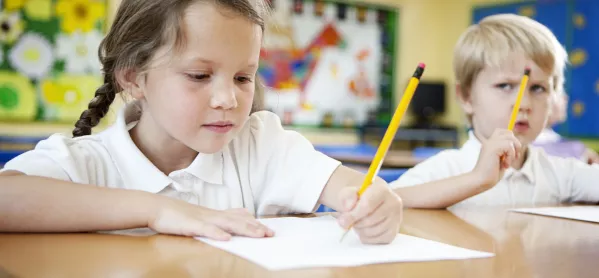Last Sunday night, I was perusing EduTwitter. I was hoping to find some light-hearted entertainment before Sats week, and I was faced with panic from fellow teachers. They were desperately rereading the administration guidance, double- and triple-checking that they had taught everything that must be covered (too late anyway, surely?), and most worryingly, they were discussing what they were going to be teaching/ testing/ working on during the afternoons.
This sense of panic feeds down to the children. Children who are just 10- or 11-years-old are feeling a sense of pressure they should never have to. Horrifying stories have emerged. Children are being told that “these tests are the most important tests you will sit!” or “You must revise or you will be letting not only yourself but the school down!” Really?
I’m not blaming teachers. I’m blaming the system
Last week a Year 6 student asked me: “Is Wales in England?” She didn’t know the answer to that, but could she identify a subordinate clause? You bet. Could she tell me the use of a semicolon? Absolutely.
That, right there, is the issue. As soon as children near Year 6 they transform into Sats robots, able to reel off lots of terminology but not answer basic, life-essential questions. A need for transferable skills is a must and something which will see them in a better position moving on to secondary school and beyond.
Sats pressure narrows the curriculum
It seems that Ofsted and the Department for Education have picked up on this crisis. Ofsted’s new framework places emphasis on the non-core curriculum. Teachers have been crying out for this change for years. But if schools are still judged on data - and key stage 2 data in particular - will anything really change? And as many Year 6 children aren’t taught the breadth of the curriculum, are we not putting them at a disadvantage when they move on to secondary?
And the DfE’s activity passport - while a lovely idea - seems pointless. Ofsted has already said it won’t be looking at it during inspections, so it will be low down on the priority list of any schools. We all know that learning through play is essential to a child’s development - and it is actively encouraged lower down in the school. But as soon as children reach Year 6, we expect them to simply listen to information and then regurgitate it. Surely debugging an issue in a computing lesson, trying to work out how to make a model out of junk or fixing an issue with their bikes are better ways for children to build a resilient attitude opposed to “in the test if you don’t know an answer put your hand up and we can reread the question to you.”
Chief inspector Amanda Spielman announced recently that Ofsted will be criticising schools that “teach to the test” while ignoring the other aspects of the curriculum. The wider curriculum is essential, but surely something has to give? How can we hit the balance between delivering a rich curriculum while the Sats is still measured as being so important?
The writer is Year 6 teacher and English and KS2 phase leader





